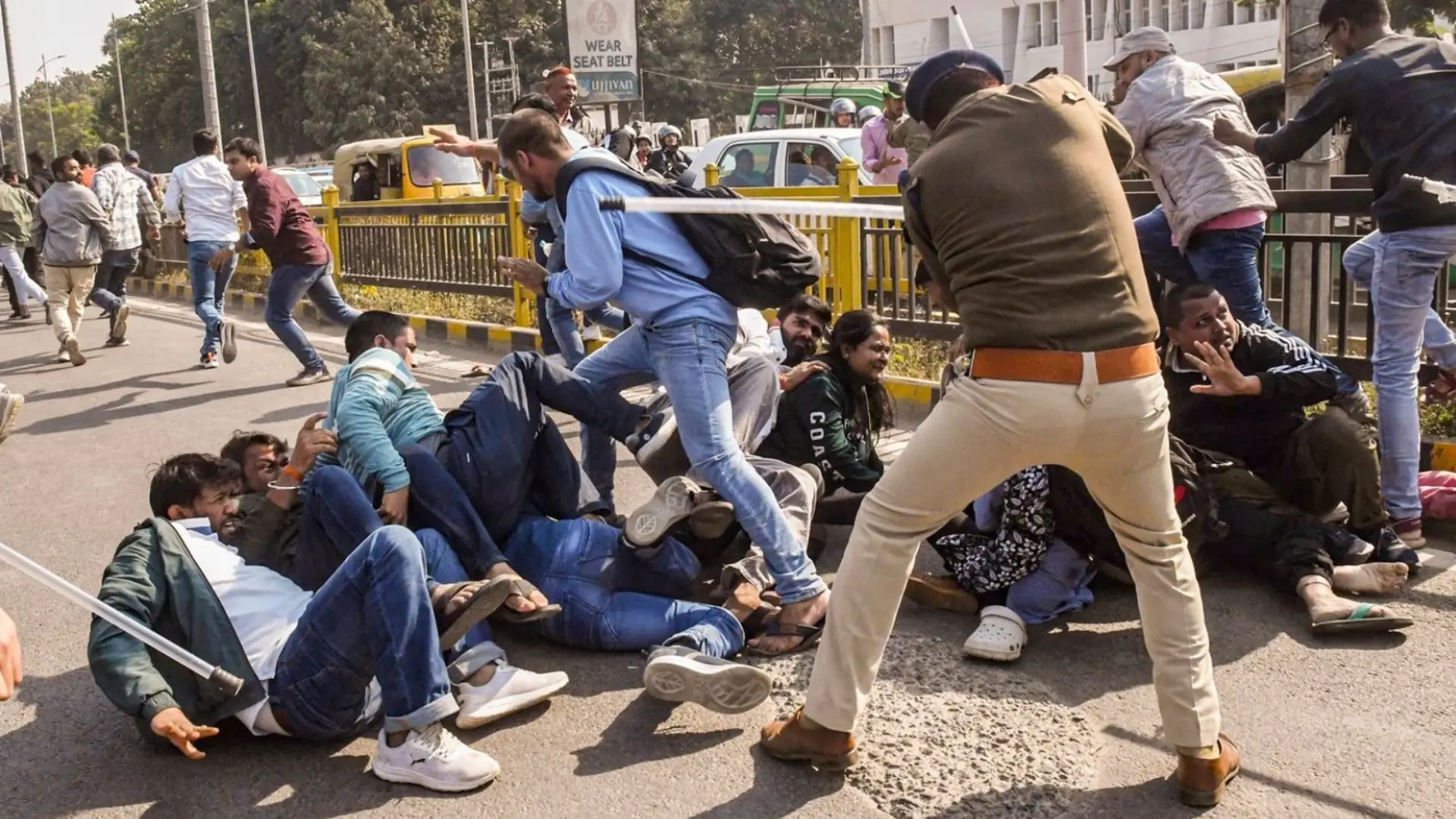On Friday, popular educators from Patna coaching centres, Faizal Khan and Motiur Rahman Khan, known as Khan Sir and Guru Rahman, were detained after participating in protests alongside civil service aspirants. The protests were in response to the issue of “normalisation” in the Bihar Public Service Commission’s (BPSC) upcoming preliminary test, scheduled for December 13.
The protesters called on BPSC Chairman R B Parmar to issue a written declaration stating that normalisation would not be implemented in the test. Several other protesters were also detained, and police had to resort to lathi charge to disperse the crowd.
Normalisation is a process designed to address potential differences in the difficulty levels of exam papers across various shifts. If the commission decides to hold the exam in two shifts, and one shift has significantly lower scores than another, normalisation would adjust the marks for candidates who took the “harder” paper.
BPSC aspirants have strongly opposed this approach, and the commission has remained uncertain about whether normalisation will be implemented. BPSC Secretary Satya Prakash Sharma clarified that the exam would be conducted in a single shift and that normalisation had not been announced. However, aspirants are demanding a formal written notification from the chairman on the matter.
During the protest, Khan Sir expressed his concerns to reporters, stating, “This is not Mathematics, where marks can be uniformly distributed. General Studies questions are subjective, and it would be unreasonable to apply normalisation. This could prevent many deserving students from qualifying for the prelims.”
Guru Rahman echoed his support for the students, saying, “We are fully behind the students and will continue protesting until the commission provides a written assurance that normalisation will not be used.”
The BPSC first implemented normalisation during the 64th Combined (Preliminary) Competitive Examination in 2018. However, after candidates raised concerns over errors in the mark calculations, the Patna High Court intervened, instructing the commission to review the process. The BPSC subsequently re-evaluated the scores and released revised results, which led to changes in the merit rankings of some candidates.
